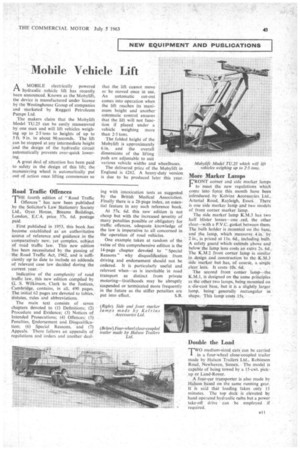Road Traffic Offences
Page 45

If you've noticed an error in this article please click here to report it so we can fix it.
THE fourth edition of "Road Traffic
Offences" has now been published by the Solicitor's Law Stationery Society Ltd., Oyez House. Breams Buildings, London, E.C.4, price 57s. 6d. postage paid.
First published in 1953, this book _has become established as an authoritative source of reference and guidance in the comparatively new, yet complex, subject of road traffic law. This new edition has been necessitated by the passing of the Road Traffic Act, 1962, and is sufficiently up to date to include an addenda of relevant case law decided during the current year.
Indicative of the complexity of road traffic law, this new edition compiled by G. S. Wilkinson, Clerk to the Justices, Cambridge. contains, in all. 490 pages. The initial 62 pages are devoted to tables, statutes, rules and abbreviations.
The main text consists of seven chapters devoted to (1) Definitions; (2) Procedure and Evidence; (3) Notices of Intended Prosecutions; (4) Offences; (5) Penalties, Endorsement and Disqualification; (6) Special Reasons, and (7) Appeals. There follows an appendix of regulations and orders and another deal
ing with intoxication tests as suggested by the British Medical Association. Finally there is a 28-page index, an essential feature in any such reference book.
At 57s. 6d. this new edition is not cheap but with the increased severity of many penalties possible or obligatory for traffic offences. adequate knowledge of the law is imperative to all concerned in the operation of road vehicles.
One example taken at random of the value of this comprehensive edition is the 14-page chapter devoted to "Special Reasons" why disqualification from driving and endorsement should not be ordered. It is particularly useful and relevant when—as is inevitable in road transport as distinct from private motoring—livelihoods may be abruptly suspended or terminated more frequently in the future as the stiffer penalties are put into effect. S.B.












































































































